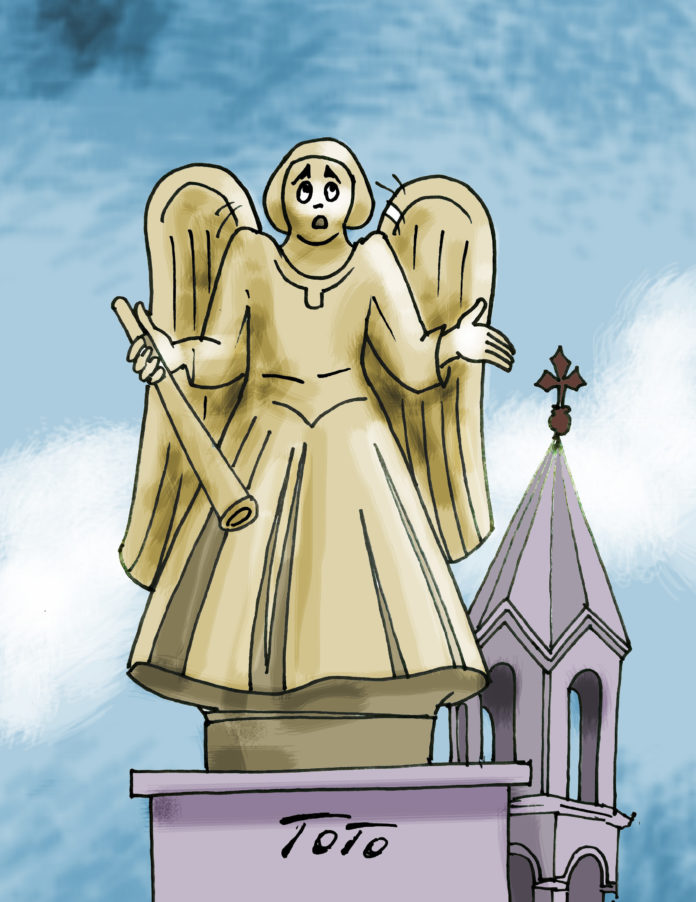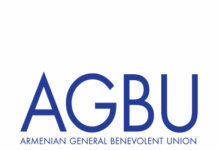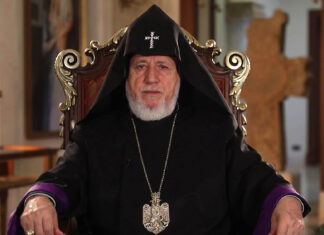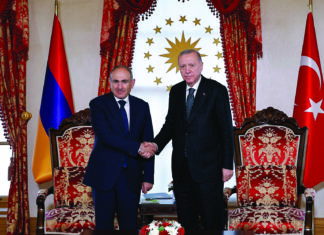Armenians woke up Tuesday with heavy hearts to see in the glare of the new day the nightmarish scenario in Nagorno Karabakh.
Had the outcome had been positive, the spilled blood and the young lives lost in 44 days of heroic battles would have been justified and not hurt as much. Instead, the tripartite peace deal signed on November 10, 2020 will become a disgraceful epitaph on the tombstones of those fallen heroes.
This calamity was long in coming. When the Velvet Revolution took place in 2018, it had an attractive single-subject goal of getting rid of corruption. That caught the imagination of the masses, particularly when the revolution’s leader, Nikol Pashinyan, assured the public that he did not have a foreign policy agenda; and that relations with friendly nations would be kept intact. But when the members of My Step party packed the ministerial positions and parliament, events took on a different direction. People in parliament such as Daniel Ioannisyan, Arman Babajanyan and Alen Simonyan, just to mention a few, began engaging in anti-Russian rhetoric. They demanded that Moscow talk to Yerevan on an equal footing, as if Yerevan’s political clout matched that of Moscow.
This shift in policy certainly upset the Kremlin, which grudgingly watched insults being hurled at its friends in Armenia, like former President Robert Kocharyan and Gen. Yuri Khachaturov. The sacking and incarceration of the latter, in particular, was shocking as he held the prestigious position of secretary general of the Collective Security Treaty Organization. That move was disastrous politically, and cost Armenia dearly.
President Recep Tayyip Erdogan of Turkey immediately saw the increasing alienation between Armenian and Russia. Armenians underestimate Erdogan’s political and diplomatic acumen at their own peril.
It was easy for Turkey to conclude that because of the deepening rift between the two formerly close allies, Moscow would not go the extra mile to protect Armenia.








